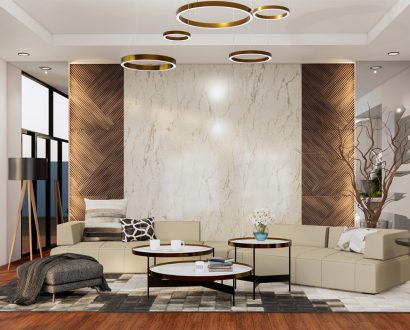Why sustainability is key to new luxury housing developments in West Africa

Senegal continues to be among Africa’s fastest growing economies. According to a recent study, the Senegalese economy is expected to grow by nearly 11 per cent in 2023. Matched by growth across West Africa, Senegal’s Dakar region and urban population will likely reach five million by 2030, fueling explosive growth in the country’s suburban regions.
As disposable incomes in Senegal grow and members of the country’s global diaspora return to the region, one thing is clear: Senegal must prepare for middle and upper-middle class suburban growth, requiring significant infrastructure and housing development.
In Senegal and across Africa, few companies and developers have identified these trends and begun to prepare for the country’s infrastructural needs, as well as the environmental consequences of this projected growth.
Luxury, but sustainable

Chief among the developers who are working to build modern and sustainable housing in the region is Sommet Properties, a Canadian-Senegalese developer operating in the Lac Rose region of Senegal.
With plans to construct a luxury housing development in the region – complete with a fully functional gated community of residences, shopping centres, schools, recreational facilities and religious accommodations – Sommet Properties is poised to become the region’s most influential developer.
"Sommet Properties began as a discussion about infrastructural and technological inequality in West Africa," Ali Soumah, a Canadian entrepreneur and investor who leads Sommet Properties as CEO, says.
"We identified the region’s fast growth and need for equitable investment to enhance its housing and sustainable development. To that end, we hope to close the gap between the country’s economic potential and infrastructural investment."
Ali is quick to highlight a key mission of Sommet Properties: to produce luxury developments in Senegal sustainably.
"Investing in housing in Senegal and West Africa doesn’t only mean modern housing for discerning homeowners," Ali says. "Equity means building houses at the forefront of innovation and ensuring that the communities we construct are built for the future.
"We won’t make the same mistakes as others have in the past," he continues. "If Senegal requires industrious growth, we aim to ensure that growth is done responsibly and with respect to the environment."
Preserving the region's future
According to experts, African and developing West African economies are most susceptible to the effects of climate change, and as urban regions like Dakar are poised to expand, sustainability will be key to new housing developments.
Of Sommet Properties’ sustainable innovations, the company plans to equip its homes with off-grid utility and electrical systems, powered by solar panels, batteries and sleek residential wind systems working seamlessly to provide energy.
The developer also plans to use state-of-the-art building technologies and materials that reduce its carbon footprint, including a proprietary wall system fabricated with recycled composites.
"We recognise that infrastructure lasts for decades, and new construction is a significant investment which needs to be properly planned," Ali says. "We guide ourselves by a long-term vision of how our construction will benefit and not burden future generations. As a result, we’ve assembled a world-class team of engineers and environmental experts to design our properties and communities."
Of Sommet Properties’ global team, the developer has employed a Chief Technology Officer who is a faculty member of the International WELL Building Institute and a member of the Institute’s City Advisory Committee; a Chief of Engineering who is a professional engineer that has over 2000 projects spanning nearly 30 years of experience in design build construction management and development; a professional Civil Engineer with a PhD and over 30 years hands on experience in the broader areas of water and wastewater management and in environmental and sustainability management; and a Safety Coordinator with almost a decade of Canadian construction and industrial Health and Safety training and management experience, to name a few.
"What we have ahead of us is an exciting and rewarding task," Ali concludes. "The legacy of this project will be a model for future developments in and around West Africa.
"Senegal’s cities are growing. Senegalese have disposable incomes. Established Senegalese abroad are returning to live in the region. Well-funded, sustainable and private investment is the surest way to advance the region's infrastructure while preserving its future."